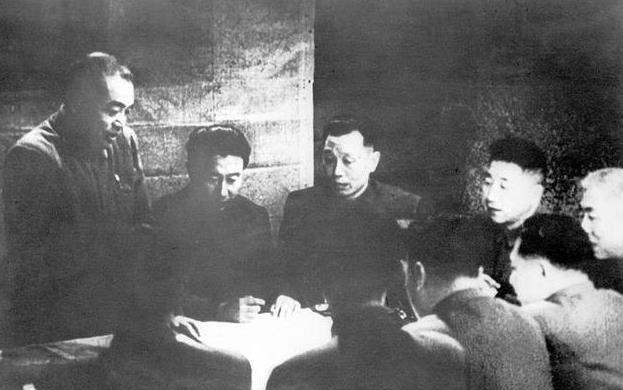In the early 1950s, the Chinese Volunteer Army crossed the Yalu River and went to fight in Korea, opening the prelude to the War to Resist US Aggression and Aid Korea. After five battles of military competition, the US Government proposed to hold peace talks with the Chinese and ROK sides, hoping that there would be an armistice. The Chinese and DPRK sides deeply feel that in terms of technical equipment, we are still at a fierce disadvantage, the US side will not ask for forgiveness so easily, this war will continue to be fought, and may launch a sixth war campaign.

Regarding how to fight this sixth campaign, Han Xianchu, who was the deputy commander of the Chinese Volunteer Army at the time, made such a suggestion. From the first campaign to resist US aggression and aid Korea to the fifth campaign, Han Xianchu participated in the whole process, and it can be said that he was very familiar with this war. Moreover, in his early experience, he fought a unique battle, especially at the time of the liberation of Hainan Island, he made a great achievement by virtue of his military talent.
In view of the current Korean battlefield, he proposed the idea of fighting guerrilla warfare behind enemy lines. In the first five battles, the enemy's rear battlefield was strongly coordinated, so that the enemy army could launch an attack without scruples and no worries. What's more, guerrilla warfare is originally an important magic weapon for our army to fight, and we have used guerrilla warfare to defeat the Japanese army and defeat the Kuomintang, so why can't we use guerrilla warfare on the Korean battlefield?
Han Xianchu was a good general, and he had been thinking about this problem and studying how to fight this guerrilla war well. His plan to form a guerrilla group was strongly supported by General Manager Peng, who had originally thought of opening up a battlefield behind enemy lines, but later shelved it. Now that Han Xianchu had mentioned this matter again, the boss must have fully supported it, so he ordered the formation of guerrilla groups behind enemy lines. According to Han Xianchu's plan, a part of the forces of the volunteer army were drawn out to form a team of more than 2,000 people.
You must know that guerrilla warfare is very difficult, and the soldiers who need to have a firm will, even if they are caught, they cannot do anything that is sentenced to organization, they must be able to bear hardships and stand hard work, and they must be strong and strong. If the generals are well chosen, and a good general is needed to lead them, who should be chosen has become a problem. Later, on the recommendation of Han Xianchu, Liu Zhenhua served as the commander of this guerrilla group.
Liu Zhenhua was a subordinate of Han Xianchu when he liberated Hainan Island, and he made many achievements in the battle, Han Xianchu knew his talents, and was now the deputy commander of the 118th Division. In several campaigns in support of Korea, Liu Zhenhua was resourceful, leading his troops to break through the enemy's encirclement many times, and he was the best candidate for the commander of the guerrilla army. Han Xianchu's recommendation was also approved by Mr. Peng, and in this way, Liu Zhenhua became the commander of the guerrillas.
After the successful formation of the guerrillas, it was decided to take the opportunity to launch the sixth campaign, giving the guerrillas the opportunity to enter the rear of the enemy army and open up the battlefield behind the enemy, but unfortunately, due to various reasons, the sixth campaign could not be launched, which also led to Liu Zhenhua's guerrillas not having the opportunity to exert their strength.
In 1964, Liu Zhenhua was awarded the rank of major general, and later in 1988, he was promoted to general. In 2018, Liu Zhenhua died in Beijing at the age of 97.